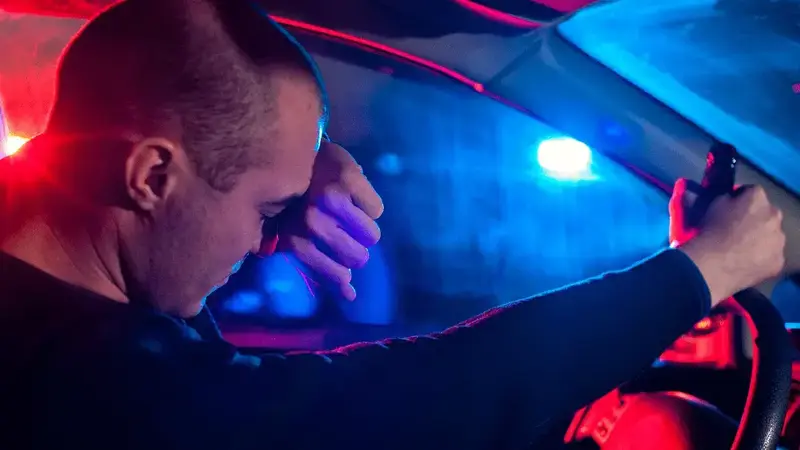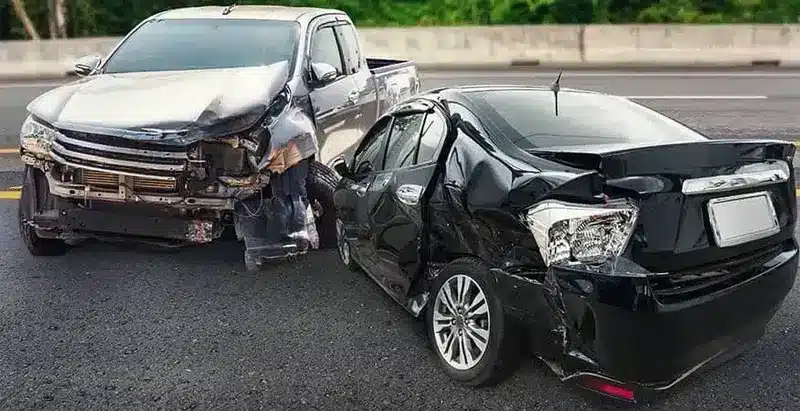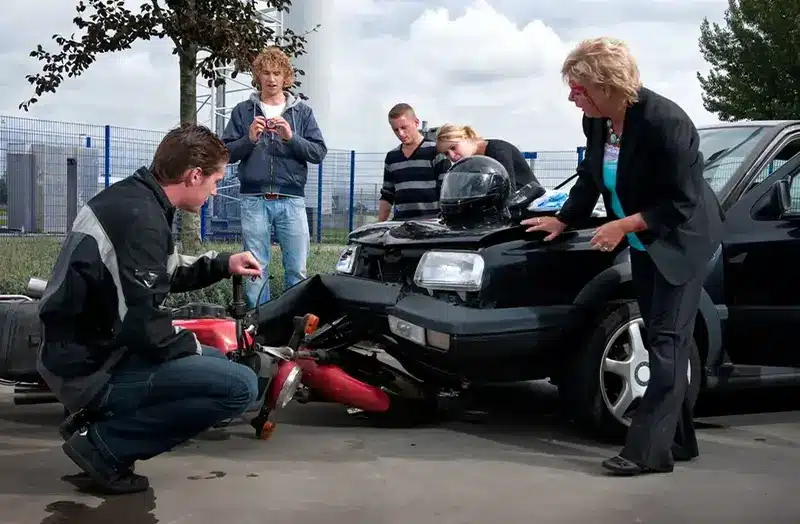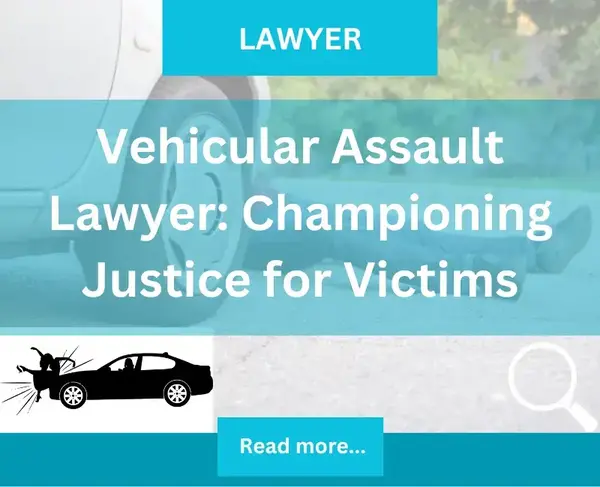Vehicular assault lawyer is a legal professional who specializes in providing legal representation for individuals facing charges related to vehicular assault. Vehicular assault involves using a vehicle as a weapon to cause harm or injury to another person intentionally. This is a serious criminal offence, and those accused of such charges require legal assistance to navigate the legal process and build a defence. The attack by the vehicle is a severe crime that can have bad consequences for both the victim and the defendant. If you are confronted with the accusation of attacks by a vehicle, you must keep a competent and experienced young lawyer to represent you.
In this article, we will examine what is a vehicle assault, what is a vehicular assault, steps to take if charged with vehicular assault, elements of vehicular assault, legal consequences of vehicular assault for vehicular assault lawyer, the role of a vehicular assault lawyer, creating a strong defence for vehicular assault lawyer and how to choose a vehicular assault lawyer.
- What is a Vehicle Assault?
- What is a Vehicular Assault?
- Steps to Take if Charged with Vehicular Assault
- Elements of Vehicular Assault
- Legal Consequences of Vehicular Assault for Vehicular Assault Lawyer
- Creating a Strong Defence for Vehicular Assault Lawyer
- The Role of a Vehicular Assault Lawyer
- How to Choose a Vehicular Assault Lawyer?
- Conclusion
- Vehicular Assault Lawyer FAQ
What is a Vehicle Assault?
Vehicle assault typically refers to an incident or act where a vehicle is intentionally used as a weapon to cause harm or damage. This can take various forms, such as ramming a vehicle into a crowd of people, buildings, or other vehicles with the intent to injure or cause destruction.
Vehicle assaults can be deliberate acts of violence, terrorism, or criminal activity. They have been used in different contexts, including terrorist attacks, protests, or individual criminal acts. The motivations behind such incidents can vary, ranging from political or ideological reasons to personal grievances.

It’s essential to note that the term may be used in different contexts, and its meaning can depend on the specific circumstances surrounding an event. In recent years, there have been instances of vehicle assaults in various parts of the world, leading to increased awareness of the potential threat and the implementation of security measures in crowded areas.
Challenges Posed by Vehicle Assaults
The emergence of vehicle assaults as a method of perpetrating violence represents a disturbing and evolving threat to public safety worldwide. Unlike traditional forms of attacks, which often involve specific weapons or tools, vehicular assaults capitalize on the omnipresence of automobiles, turning an everyday object into a potential instrument of harm. This trend has given rise to a unique challenge that extends beyond the conventional security parameters.
- Difficulty in Prevention: Unlike traditional weapons, vehicles are ubiquitous and essential for daily life, making identifying and preventing potential threats challenging. The ease of access to cars makes it difficult to implement preemptive measures.
- Unpredictability: Vehicle assaults can happen suddenly and with little warning, making it difficult for law enforcement and security personnel to anticipate and respond effectively. The element of surprise often results in a higher casualty rate.
- Lack of Specific Countermeasures: Unlike other forms of attacks, there is a lack of standardized countermeasures against vehicle assaults. Traditional security measures such as metal detectors and checkpoints may need to be revised to prevent these incidents.
- Urban Vulnerability: The design of urban spaces, with crowded streets and public areas, increases the vulnerability to vehicular attacks. Securing these environments concerning public access and mobility presents a significant challenge.
- Adaptability: Perpetrators can easily adapt their tactics, choosing different types of vehicles or altering attack methods, making it challenging for authorities to develop a one-size-fits-all solution.
The challenges posed by vehicle assaults underscore the imperative for innovative and collaborative efforts to safeguard public spaces and mitigate potential threats. The difficulty in preemptive measures, the inherent unpredictability of vehicular attacks, and the adaptability of perpetrators necessitate a holistic approach that combines intelligence, technology, public awareness, and international cooperation. As we strive to navigate the complexities of this evolving threat, it becomes increasingly clear that a proactive and coordinated response is essential to stay ahead of the curve and protect communities from the impact of vehicle assaults.
Solutions to Mitigate Vehicle Assaults
Mitigating the rising threat of vehicle assaults demands a proactive and multifaceted approach integrating technology, public awareness, and strategic planning. As vehicular attacks continue to pose a significant challenge to public safety, it is imperative to explore comprehensive solutions that address the dynamic nature of this evolving threat. Recognizing the complexities involved in countering such incidents, innovative measures must be deployed to minimize the risk and impact of vehicle-based assaults.
- Improved Intelligence and Surveillance: Enhancing intelligence gathering and surveillance capabilities can help identify potential threats before they materialize. Advanced technologies such as facial recognition, license plate recognition, and behavioural analysis can aid early detection.
- Physical Barriers and Infrastructure Design: Implementing physical barriers, such as bollards and barricades, in public spaces can deter and mitigate the impact of vehicular attacks. Urban planners should consider incorporating these measures into infrastructure design.
- Public Awareness and Training: Raising public awareness about the threat of vehicle assaults and providing training on responding in such situations can empower individuals to take action and reduce casualties.
- Technology-Based Solutions: Deploying technology solutions like automatic braking systems, collision detection, and vehicle access controls can enhance the safety features of vehicles and reduce the risk of intentional misuse.
- International Cooperation: Given the global nature of terrorism and extremism, international cooperation is essential. Sharing intelligence, best practices, and collaborating on research and development can lead to more effective strategies to counter vehicle assaults.
Addressing the rise of vehicle assaults requires a multifaceted approach that combines technological innovation, public awareness, and international cooperation. By understanding the challenges posed by this emerging threat and implementing proactive measures, societies can work towards creating safer and more resilient environments. Governments, law enforcement agencies, and communities must collaborate in developing comprehensive strategies to mitigate the risks associated with vehicle-based attacks and safeguard public safety.
What is a Vehicular Assault?
Vehicular assault refers to a crime in which a person uses a vehicle to intentionally or recklessly cause harm or injury to another person. The specifics of this offense can vary depending on the jurisdiction, but it generally involves some form of dangerous or aggressive driving that leads to physical injury.

Here are critical points about vehicular assault:
- Definitions and Legal Framework
- Intentional Act: In some cases, vehicular assault involves the driver intentionally using their vehicle as a weapon to harm someone.
- Reckless Driving: More commonly, it involves reckless or negligent driving behaviors that result in injury, such as driving under the influence of alcohol or drugs, excessive speeding, or aggressive driving.
- Injury: The assault is characterized by the presence of physical injury to another person. The severity of the injuries can impact the charges and penalties.
- Examples of Vehicular Assault
- Driving Under the Influence (DUI): A driver operating a vehicle while intoxicated and causing an accident that injures another person could be charged with vehicular assault.
- Road Rage: A driver engaging in aggressive maneuvers out of anger, leading to a collision and injury.
- Reckless Speeding: A driver going significantly over the speed limit in a manner that endangers others and results in an injury-causing accident.
- Legal Consequences
- Criminal Charges: Vehicular assault can result in criminal charges ranging from misdemeanors to felonies, depending on the severity of the injury and the circumstances of the incident.
- Penalties: Penalties may include jail or prison time, fines, community service, probation, and mandatory advanced trial advocacy courses. Repeat offenders or those with particularly egregious conduct may face harsher penalties.
- Civil Liability: Beyond criminal charges, the driver may also face civil lawsuits from the injured party, seeking compensation for medical expenses, lost wages, and pain and suffering. Understanding your rights and the intricacies of the law is essential in seeking justice and compensation.
- Preventive Measures
- Education and Awareness: Promoting safe driving practices and the dangers of impaired and aggressive driving.
- Law Enforcement: Increased police presence and strict enforcement of traffic laws to deter reckless driving behaviors.
- Technology: Implementation of advanced driver-assistance systems (ADAS) in vehicles to prevent accidents and enhance road safety.
Vehicular assault is a serious crime with significant legal implications. Understanding the legal definitions, potential consequences, and preventive measures can help avoid such incidents and respond appropriately if they occur.
Is Vehicular Assault a Misdemeanor or Felony?
Vehicular assault can be classified as either a misdemeanor or a felony, depending on the specific circumstances of the case and the laws of the jurisdiction where the offense occurs. Generally, the classification influences the severity of the offence, the level of harm caused, and whether the driver was intoxicated or otherwise impaired during the incident.
- Felony Vehicular Assault: In many jurisdictions, vehicular assault is classified as a felony if it involves:
- Another person being seriously injured or, worse, dying.
Driving under the influence of alcohol or drugs.
Reckless driving or gross negligence.
- Another person being seriously injured or, worse, dying.
- Misdemeanor Vehicular Assault: Vehicular assault may be considered a misdemeanor if it involves:
- Minor injuries or less severe harm.
Circumstances that do not include intoxication or gross negligence.
- Minor injuries or less severe harm.
- Legal Consequences: The penalties for vehicular assault vary widely but can include:
- Felony: Lengthy prison sentences, fines, probation, and a permanent criminal record.
Misdemeanor: Shorter jail time, more minor fines, community service, and possibly probation.
- Felony: Lengthy prison sentences, fines, probation, and a permanent criminal record.
The classification of vehicular assault as a misdemeanor or felony is contingent upon various factors, including the degree of harm caused and the driver’s behavior at the time of the incident. It’s crucial to consult specific state or local laws for precise information.
Steps to Take if Charged with Vehicular Assault
Being charged with vehicular assault is a serious matter, and it’s crucial to respond appropriately to protect your legal rights. Here are the steps you should take if you find yourself in vehicular assault:
- Stay Calm and Cooperate with Law Enforcement
- Remain at the Scene: Never leave the scene of an accident. This can lead to additional charges.
- Cooperate: Follow the instructions of law enforcement officers without admitting guilt or making statements about the incident.
- Seek Legal Counsel
- Hire an Attorney: Hire a criminal defense attorney specializing in vehicular crimes as soon as possible. A criminal defense lawyer can guide you through the legal process, explain your rights, and develop a defense strategy.
- Avoid Self-Incrimination: Do not discuss the details of the incident with anyone other than your criminal defense attorney. Remember that every word you say can be used against you in court.
- Document Everything
- Gather Evidence: Collect any evidence that may help your case, including photos of the scene, witness statements, and other relevant information.
- Medical Records: If you were injured, keep detailed medical treatment and recovery records. This can be important for your defense and may support a mitigating circumstance claim. Medical malpractice attorneys fight for victims of negligent medical professionals.
- Understand the Charges and Penalties
- Review the Charges: Understand the specific charges against you and the potential penalties. Vehicular assault laws vary by state, but they generally involve causing severe bodily injury while driving recklessly or under the influence of alcohol or drugs.
- Potential Consequences: Penalties include jail time, fines, license suspension, and a permanent criminal record. Understanding the severity can help you and your experienced vehicular assault lawyer build a robust defense.
- Follow Court Procedures
- Attend All Hearings: Make sure to attend all court hearings. If you do not show up for your court date, a warrant may be issued for your arrest, and you may face additional charges.
- Comply with Conditions: If the court imposes any conditions, such as attending a substance boarding school abuse victims program or adhering to a curfew, comply fully. If the victim is a police officer or a firefighter, the time can extend to five years in prison, and you may receive a fine of up to $10,000.
- Consider Mitigating Actions
- Rehabilitation Programs: Enrolling in a rehabilitation or driving safety course voluntarily can demonstrate to the court that you are taking steps to address the behavior that led to the charges.
- Community Service: Volunteering or engaging in community service can also be seen positively by the court.
- Prepare for Trial
- Work with Your Attorney: Your civil trial lawyer will help you gather evidence, find expert witnesses, and prepare your defense.
- Mock Trials: Participate in mock trials to get comfortable with the courtroom setting and to understand the types of questions you might face.
- Post-Trial Considerations
- Sentencing: If convicted, adhere to all sentencing requirements, including paying fines, serving jail time, or attending court-ordered programs.
- Appeal: If you believe there was a legal error in your trial, discuss the possibility of an appeal with your personal injury attorneys.
Facing a vehicular assault charge is daunting, but taking the proper steps can help you navigate the legal system more effectively. Always prioritize finding competent legal representation and comply with all legal requirements. Remember, every case is unique, and your civil law attorneys will tailor their advice to your specific circumstances.
Elements of Vehicular Assault
Vehicular assault refers to the act of using a vehicle as a weapon to cause harm or injury to another person intentionally. This is a criminal offense and is taken seriously by law enforcement. The elements of vehicular assault may vary slightly depending on the jurisdiction, but generally, they include:
- Evidence: The prosecution needs to present sufficient evidence, which may include eyewitness accounts, surveillance footage, or expert testimony, to establish the elements of the offense.
- Legal Definitions: The specific legal definitions and elements can vary by jurisdiction, so it’s important to refer to the relevant statutes and case law in a particular location.
- Intent: The act must be intentional, indicating that the driver intended to use the vehicle as a weapon.
- Recklessness: In some cases, the prosecution may need to prove that the accused acted recklessly or with a disregard for the safety of others.
- Use of a Vehicle: The accused must have used a motor vehicle to commit the assault. This can include cars, trucks, motorcycles, or any other form of motorized transportation.
- Injury or Harm: There must be evidence of actual injury or harm caused to another person. This can range from minor injuries to more severe bodily harm.
- Causation: The prosecution needs to establish a direct link between the defendant’s actions and the resulting injuries. It must be shown that using the vehicle directly caused the harm.
- Criminal Intent: The accused must have had criminal intent, meaning they intended to cause harm or were aware that their actions could lead to damage.
- Knowledge of the Risk: In some jurisdictions, it may be necessary to show that the accused was aware of the risks of dangerously using a vehicle.
Vehicular assault is a serious offense, and the consequences can include criminal charges, fines, and imprisonment. It’s crucial to consult the specific laws in the jurisdiction where the incident occurred to understand the exact elements and penalties associated with vehicular assault.
Legal Consequences of Vehicular Assault for Vehicular Assault Lawyer
The legal consequences of vehicular assault can vary depending on the jurisdiction and the specific circumstances of the incident. In general, vehicular assault is a serious criminal offense, and individuals convicted of this crime may face a range of legal consequences.

Here are some common legal consequences associated with vehicular assault:
- Criminal Record: A conviction for vehicular assault will likely result in a criminal record, which can have long-term consequences, including difficulties in obtaining employment, housing, or professional licenses.
- Criminal Charges: Individuals accused of vehicular assault may face criminal charges, which can include assault with a deadly weapon, reckless driving, or other related offenses. Gun violence defense lawyers play a crucial role in advocating for reforms to make compensation more accessible for all survivors. A seasoned gun violence defense lawyer provides legal representation and actively champions change.
- Fines: Convicted individuals may be required to pay fines as part of their sentence. The amount of the penalties can vary based on the severity of the offense and local laws.
- Imprisonment: Jail or prison sentences are common consequences for vehicular assault convictions. The length of the sentence can vary, with more severe cases resulting in longer incarceration.
- Probation: In some cases, a court may impose probation as part of the sentence. During probation, the individual must comply with specific conditions set by the court, such as regular check-ins, drug testing, and restrictions on travel.
- Restitution: Courts may order the convicted individual to pay restitution to the victim to cover medical expenses, property damage, or other costs resulting from the assault.
- Community Service: Some sentences may include community service requirements, where the offender must perform a specified number of community service hours.
- License Suspension or Revocation: A conviction for vehicular assault may lead to suspending or revoking the offender’s driver’s license. The duration of the suspension or revocation can vary, and some jurisdictions may require the completion of a defensive driving or rehabilitation program before reinstating the license.
The penalties for vehicular assault vary depending on the severity of the incident and the laws of the state where the crime occurred. Here’s a general overview:
| Severity of Injury | Possible Penalties | License Suspension |
| Minor Injuries | Fines, Probation | 6 months |
| Serious Injuries | Jail Time (1-5 years), Hefty Fines | 1-2 years |
| Fatality | Prison (5-20 years), Major Fines | Permanent Revocation |
It’s important to note that the specific legal consequences can vary by jurisdiction, and courts consider factors such as the severity of the injuries, the defendant’s criminal history, and any mitigating or aggravating circumstances. Legal advice from experienced vehicular assault lawyer familiar with the laws in the relevant jurisdiction is crucial for individuals facing charges of vehicular assault.
Creating a Strong Defence for Vehicular Assault Lawyer
Crafting a strong defence is paramount when facing legal criminal allegations, particularly in cases of vehicular assault where the stakes are high. When faced with allegations of violent crimes, it can be challenging to grasp the intricacies of legal processes. A well-prepared defence not only safeguards the accused’s rights but also serves as a critical shield against potentially severe consequences such as imprisonment, fines, and lasting damage to one’s personal and professional life. Creating a strong defence in a vehicular assault case is crucial to protect the accused’s rights and seek the best possible outcome. Here are key strategies and considerations to build a robust defence:
- Preparation for Trial: If the case goes to trial, thoroughly prepare for courtroom proceedings. Anticipate the prosecution’s arguments and present a compelling case that raises reasonable doubt.
- Investigation: Conduct a thorough investigation into the incident. Collect evidence, interview potential witnesses, and collaborate with experts (accident reconstructionists, medical professionals, etc.) to comprehensively understand the events leading to the charges.
- Challenging Evidence: Scrutinize the prosecution’s evidence for weaknesses. This may include questioning the reliability of eyewitness accounts, challenging the accuracy of forensic evidence, or disputing the interpretation of surveillance footage.
- Procedural Errors: Examine the legal procedures followed during the investigation and arrest. If there were any violations of the accused’s rights, such as improper search and seizure or failure to read Miranda rights, these can be grounds for suppressing evidence.
- Alibi or Lack of Presence: If applicable, present evidence or alibis demonstrating that the accused was not at the scene or was not operating the vehicle at the time of the alleged assault.
- Mental State Defense: In some cases, a defence based on the accused’s mental state at the time of the incident may be relevant. This could involve issues such as diminished capacity or insanity.
- Negotiation and Plea Bargaining: Engage in negotiations with the prosecution to explore opportunities for reduced charges or alternative sentencing. This may involve reaching a plea bargain that is more favourable to the accused.
- Character Witnesses: Present character witnesses who can testify to the accused’s good character, responsibility, and lack of a history of violent behaviour.
- Documentation of Mitigating Factors: Gather evidence of mitigating factors influencing sentencing. This could include evidence of remorse, efforts to make amends, or participation in rehabilitation programs.
Constructing a strong defence in a vehicular assault case is an intricate and vital process that demands meticulous attention to detail and a strategic approach. The consequences of a vehicular assault conviction are significant, emphasizing the critical need for a well-prepared defence. In pursuing justice and protecting individual rights, a strong defence stands as a formidable shield against the potential ramifications of vehicular assault charges, highlighting the importance of a comprehensive and proactive approach to legal representation. Tailoring the defence strategy to the case’s specific circumstances and jurisdictional laws is important. Working closely with criminal defense attorneys and utilizing appropriate legal strategy can significantly enhance the chances of a favourable outcome in a vehicular assault case.
The Role of a Vehicular Assault Lawyer
A vehicular assault lawyer plays a crucial role in helping individuals facing charges related to using a vehicle as a weapon to cause harm or injury. The role of a vehicular assault lawyer includes various tasks aimed at building a strong defense and navigating the legal process.

Here are some key aspects of their role:
- Legal Advice: A vehicular assault lawyer provides legal advice to the accused, explaining their rights, charges, and potential consequences. They help individuals understand the legal process and guide them on the best action.
- Investigation: Vehicular assault lawyers conduct thorough investigations into the circumstances surrounding the alleged vehicular assault. This includes reviewing evidence, interviewing witnesses, and collaborating with experts if necessary to build a robust defense.
- Case Analysis: Vehicular assault lawyers analyze the case details to identify weaknesses in the prosecution’s argument. They assess the evidence, witness statements, and other factors that may impact the case outcome.
- Legal Strategy: Based on their analysis, vehicular assault lawyers develop a legal strategy tailored to the case’s specific circumstances. This may involve challenging evidence, questioning the credibility of witnesses, or seeking to have charges reduced or dismissed.
- Negotiation: Vehicular assault lawyers often negotiate with the prosecution to secure the best possible outcome for their client. This may involve plea bargaining for reduced charges or more favorable sentencing terms.
- Courtroom Representation: Vehicular assault lawyers represent their clients during hearings, arraignments, and trial proceedings. They present arguments, question witnesses, and make legal motions to protect the rights of the accused.
- Legal Research: Vehicular assault lawyers conduct legal research to understand relevant statutes, case law, and legal precedents that may impact the abuse case. This helps them build a strong legal argument and identify potential defenses. It is also important to hire a sexual abuse lawyer. Attention should be paid to sexual abuse.
- Mitigation: In cases where certain convictions are likely, vehicular assault lawyers work on mitigating factors to minimize the potential consequences. This may involve presenting evidence of the defendant’s remorse, cooperation, or efforts to make amends.
- Sentence Advocacy: If the accused is convicted, vehicular assault lawyers advocate for a fair and just sentence, considering factors such as the severity of the offense, the defendant’s criminal history, and any mitigating circumstances. A compassionate advocate passionately supports and fights for a cause, individual, or group with empathy, understanding, and a deep sense of care. Advocates combine advocacy with compassion, ensuring that a genuine concern for the well-being of others drives their actions. The Trial Advocacy Honor Society (TAHS) is a prestigious organization typically found within law schools, aimed at students interested in honing their skills in trial advocacy.
- Appeals: In the event of a conviction, vehicular assault lawyers may assist in filing appeals if there are legal errors or constitutional violations during the trial.
Hiring an experienced vehicular assault lawyer is essential for anyone facing such charges, as they can provide expert guidance, protect the individual’s rights, and work towards achieving the best possible outcome given the case circumstances.
How to Choose a Vehicular Assault Lawyer?
Choosing the right vehicular assault lawyer is a critical decision that can significantly impact the outcome of your case. Vehicular assault charges are serious, and navigating the legal complexities requires a vehicular assault lawyer with the right experience, expertise, and commitment. As you embark on this important selection process, consider factors such as the vehicular assault lawyer‘s background in criminal defense, reputation, track record, and local knowledge. Effective communication, a client-centered approach, and a clear understanding of the legal landscape are also key attributes for a vehicular assault lawyer. Here are some considerations to help you select the right vehicular assault lawyer:
- Experience: Look for a vehicular assault lawyer with expertise in handling vehicular assault cases. A vehicular assault lawyer familiar with these cases’ specific nuances and challenges is more likely to provide effective representation.
- Track Record: Research the vehicular assault lawyer‘s track record in handling vehicular assault cases. Look for evidence of successful outcomes and favorable results in similar situations.
- Communication Skills: Effective communication is crucial in legal proceedings. Choose a vehicular assault lawyer who can clearly explain legal concepts, keep you informed about the progress of your case, and address your concerns.
- Resources and Support Staff: Assess the resources available to the vehicular assault lawyer, including support staff and expert witnesses. A well-equipped legal team can contribute to a more comprehensive defense strategy.
- Local Knowledge: Choose a vehicular assault lawyer familiar with the local legal system, including judges, prosecutors, and court procedures. Local knowledge can be an advantage in navigating the specific nuances of the jurisdiction. The prosecutor can charge you with another simultaneous offence on top of vehicular assault, depending on the circumstances.
- Fee Structure: Understand the vehicular assault lawyer‘s fee structure and payment arrangements. While cost is a consideration, prioritize the overall value and expertise offered by the vehicular assault lawyer.
- Availability: Ensure the vehicular assault lawyer has the time and availability to dedicate to your case. A vehicular assault lawyer with a manageable caseload will give your case the attention it deserves.
- Confidentiality: Ensure that the vehicular assault lawyer values client confidentiality and is committed to protecting your privacy throughout the legal process.
The process of selecting a vehicular assault lawyer is a critical step that demands careful consideration and thorough research. The consequences of vehicular assault charges are serious, making it imperative to choose a vehicular assault lawyer who not only understands the complexities of the legal system but is also committed to safeguarding the rights and interests of the accused. Ultimately, a well-chosen vehicular assault lawyer can play a pivotal role in achieving the best possible outcome and navigating the legal complexities associated with such charges. Take the time to research and meet with potential vehicular assault lawyers before making a decision. It’s essential to feel confident in your attorney’s abilities and to establish a good working relationship from the outset.
Conclusion
In conclusion, the choice of a vehicular assault lawyer is a critical determinant in the trajectory of your legal proceedings and the potential outcomes of your case. The complexities of vehicular assault charges demand legal counsel who comprehensively understands the law and is dedicated to safeguarding your rights and pursuing the best possible outcome. Take the time to thoroughly research and consider your options, ensuring that the vehicular assault lawyer you choose is well-equipped to navigate the intricacies of your case and provide the trial advocacy you need during this challenging time.
Vehicular Assault Lawyer FAQ
Facing a vehicular assault charge can be an overwhelming and confusing experience. These serious charges can have life-altering consequences, from hefty fines to lengthy prison sentences. Navigating the legal complexities on your own can be daunting, so it’s crucial to have an experienced vehicular assault lawyer by your side. In this FAQ, we aim to address some of the most common questions and concerns you might have if you or a loved one is dealing with a vehicular assault case.
What is aggravated vehicular assault?
Aggravated vehicular assault is a criminal offense that involves causing serious bodily harm to another person while operating a vehicle in a reckless or impaired manner. The severity of the offense is typically elevated to “aggravated” when certain aggravating factors are present, such as driving under the influence of drugs or alcohol, driving with a suspended license, or engaging in other reckless behaviors.
Can a plea bargain be an option in a vehicular assault case?
Yes, a plea bargain is a potential option in some cases. Your vehicular assault lawyer may negotiate with the prosecution to reduce charges or secure a more lenient sentence based on the circumstances of the case.
What factors influence the severity of vehicular assault charges?
Factors such as the degree of recklessness, the extent of injuries, intoxication, and any previous criminal history can influence the severity of the charges and potential penalties.
What defenses are available for vehicular assault charges?
Possible defenses include challenging evidence, questioning the legality of the traffic stop or arrest, proving lack of intent, or demonstrating that the injuries were not a result of the accused’s actions.






















